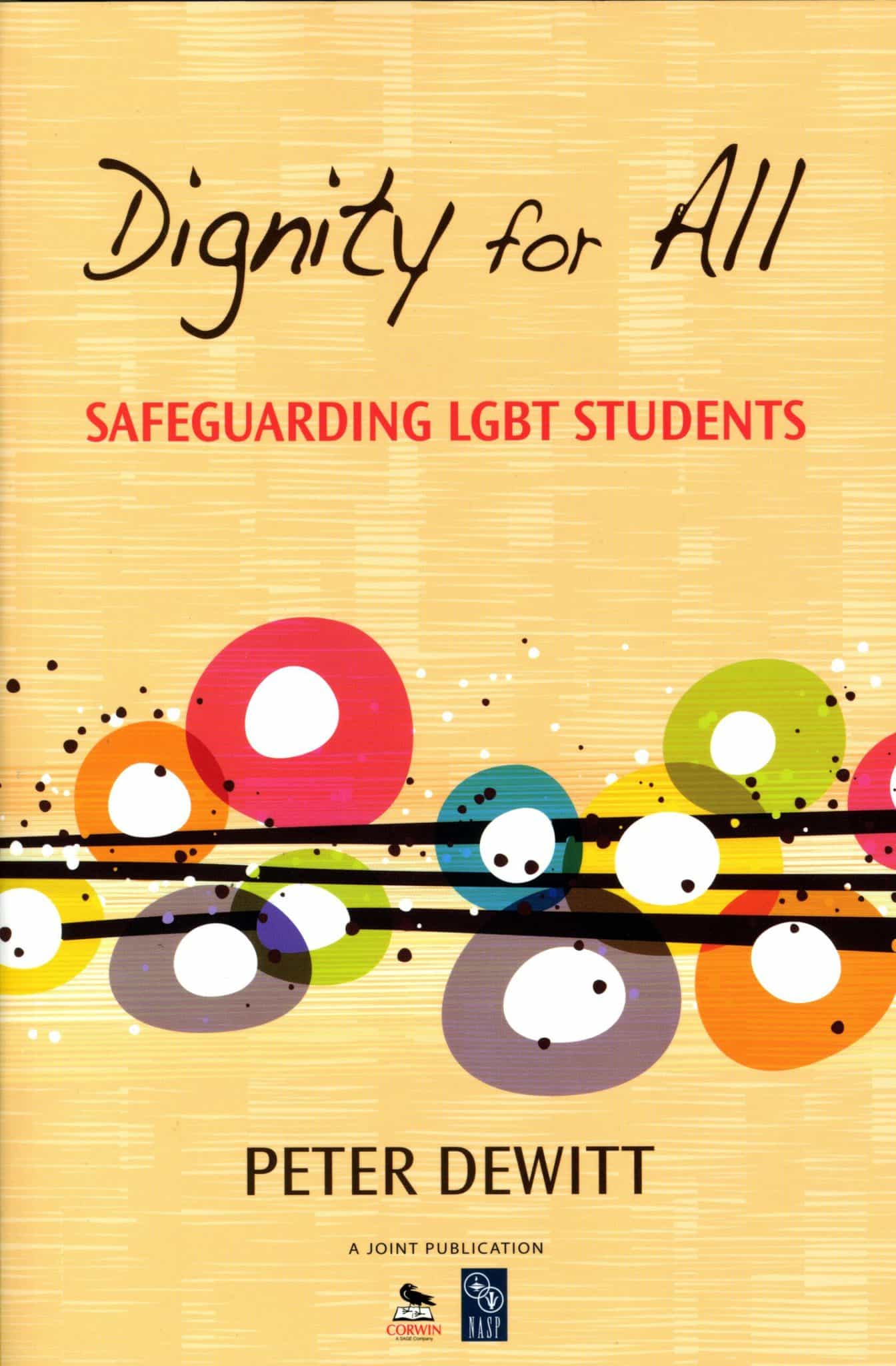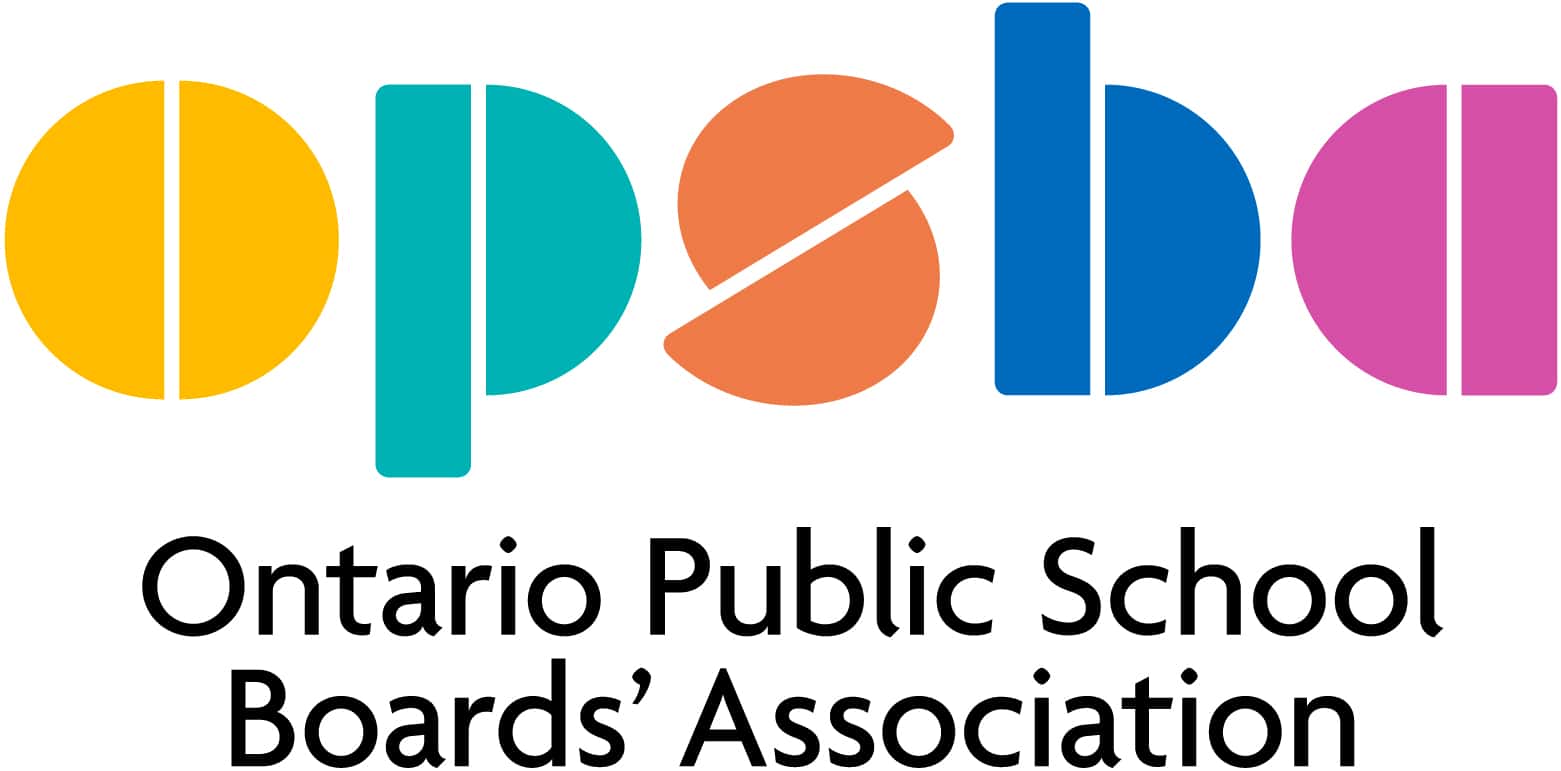Dignity for All: Safeguarding LGBT Students
Review by Melanie Tait
 In 2012, the Accepting Schools Act (Bill 13) was proclaimed in Ontario and, accordingly, amendments were made to the Education Act. In addition to other requirements, the legislation obliges boards to develop and implement an inclusive education policy and requires them to promote a positive school climate that accommodates all pupils, including pupils of any race, ancestry, place of origin, colour, ethnic origin, citizenship, creed, sex, sexual orientation, gender identity, gender expression, age, marital status, family status or disability. Boards have a responsibility to take measures to prevent bullying, and to educate teachers and other board staff about bullying prevention and strategies that promote positive school climates. The legislation defines bullying and cyberbullying. Boards are also required to support students who want to establish and engage in activities and organizations that promote a safe and inclusive learning environment and one that is accepting and respectful of others. This includes activities or organizations that promote gender equity; activities or organizations that promote anti-racism; activities or organizations that promote awareness, understanding of and respect for people with disabilities; and activities or organizations that promote awareness and understanding of and respect for people of all sexual orientations and gender identities, including organizations with the name “gay-straight alliance.”
In 2012, the Accepting Schools Act (Bill 13) was proclaimed in Ontario and, accordingly, amendments were made to the Education Act. In addition to other requirements, the legislation obliges boards to develop and implement an inclusive education policy and requires them to promote a positive school climate that accommodates all pupils, including pupils of any race, ancestry, place of origin, colour, ethnic origin, citizenship, creed, sex, sexual orientation, gender identity, gender expression, age, marital status, family status or disability. Boards have a responsibility to take measures to prevent bullying, and to educate teachers and other board staff about bullying prevention and strategies that promote positive school climates. The legislation defines bullying and cyberbullying. Boards are also required to support students who want to establish and engage in activities and organizations that promote a safe and inclusive learning environment and one that is accepting and respectful of others. This includes activities or organizations that promote gender equity; activities or organizations that promote anti-racism; activities or organizations that promote awareness, understanding of and respect for people with disabilities; and activities or organizations that promote awareness and understanding of and respect for people of all sexual orientations and gender identities, including organizations with the name “gay-straight alliance.”
As Ontario educators implement these legislated requirements, Peter DeWitt’s reader-friendly and well-referenced book Dignity for All: Safeguarding LGBT Students is very timely. DeWitt is an experienced and widely published principal, and the book outlines strategies for students, staff and parents working with LGBT students, their peers and their families to support success for all.
After a well-organized table of contents, the book begins with an inspiring preface encouraging educators “to make at least one change in their classrooms or schools that will make an LGBT student feel safer and more welcome.” The author shares engaging and sometimes poignant vignettes of school life – stories, excerpts from parent messages, quotes from students, teachers, parents, public speakers and other authors. These examples related to the lives of LGBT students in schools enrich the text and make it ring true.
DeWitt looks at serious issues such as bullying and cyberbullying, inclusion, keeping students safe, the importance of role models, teacher biases and parent outreach. The preface outlines the purpose, intended audience, goal and approach of the book.
Chapter 1, “The Silent Minority,” sets the scene. DeWitt lays out reasons why support for LGBT students is so important. The isolation, marginalization, fear and sense of being different that LGBT youth experience are often the result of teasing, harassment, discrimination, negative stereotyping and bullying. This can have a serious negative impact on academic performance and school attendance, dropout rates, drug and alcohol abuse, depression, suicidal thoughts and even suicide. Some LGBT students have the love and support of their families; others do not. DeWitt refers to LGBT students as a “fragile student population,” who need the support of teachers and school leaders because of the discrimination they experience when they are coming out to peers and family.
The second chapter, “Bullying of LGBT Students,” focuses on bullying, citing research from a variety of sources. DeWitt suggests that bullying behaviour begins in the elementary grades, and that opportunities for harassment and bullying, and indeed for cyberbullying, increase as students become older, with more independent and unsupervised time. As in all of the chapters, there are several interesting vignettes here, as well as lists of proposed actions and discussion questions.
Chapter 3, “The Role of Schools,” explains and emphasizes the important role that schools play in setting a tone of safety and inclusion for all students. Teacher biases are explored, as are some ideas for professional development and parental outreach and engagement.
Next, chapter 4, “Curriculum Matters,” is devoted to supportive learning environments and curriculum links for LGBT students and other students across various subject areas. There are interesting suggestions for teachers about using diverse literature in their classroom programs and ideas for each of the curriculum areas.
The fifth chapter, “Gay-Straight Alliances,” looks at why schools should offer a gay-straight alliance, what the role of a GSA is, how to start and run the group and the kinds of events the GSA might undertake. Chapter 6, “Following Through: School Board Policies and Codes of Conduct,” looks at policies that support a shared vision for a safe and inclusive school and at partnerships between the school and parents. Finally, chapter 7 makes the link with postsecondary education. The book ends with a reference section and a useful index.
As the author suggests, this book should be viewed as a handbook and as a book for group discussion. At the end of each of the seven chapters, there are a number of action steps for staff to consider, and engaging questions to promote discussion and reflection. Dignity for All: Safeguarding LGBT Students would make an excellent professional development tool for administrators, school board staff, teachers and educational assistants, and would be a superb companion for training school board staff on issues of equity, safe schools and inclusion.
Melanie Tait, Ed. D., is an educational consultant who currently manages the LGBTQ Project, a ministry-funded project mandated to create training and professional resources for Ontario school boards to align with the amendments to the Education Act resulting from the proclamation of Bill 13, the Accepting Schools Act. Online resources and an extensive resource list on the topic of LGBTQ awareness and bullying will be available to all school boards through the Ontario Education Services Corporation website. Tait also teaches courses at the Ontario Institute of Studies in Education in the master of teaching and initial education programs.
Dignity for All: Safeguarding LGBT Students
Peter DeWitt
Corwin Publications, Thousand Oaks, Calif., 2012
117 pages, US$25.95 (paper)

